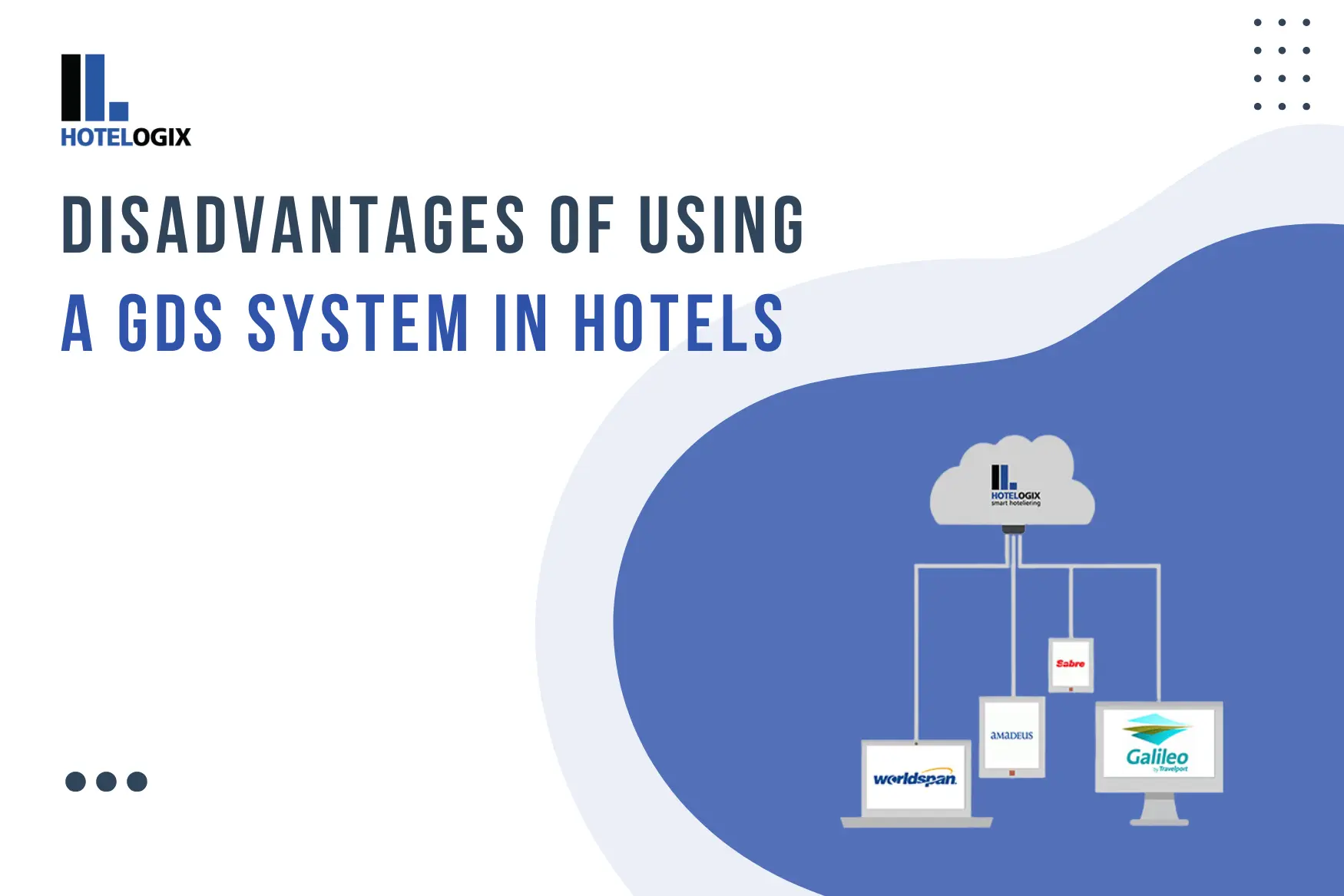A Global Distribution System (GDS) is a computerized network used by travel agents, online travel agencies, and corporate travel managers to book travel services like hotel rooms, airline tickets, car rentals, and more.
The database collects and distributes information on room availability, occupancy rates, and inventory for travel services worldwide. The most popular GDS networks include Amadeus, Sabre, Galileo, and Worldspan. These systems connect hotels and other service providers to a vast audience, helping them reach travellers worldwide.
Why is a Global Distribution System Important in the Hotel Industry?
GDS is important in the hotel industry as it helps hotels expand their reach, increase bookings, and generate revenue.
1. GDS helps hotels increase visibility and occupancy:
By connecting to a global distribution system, hotels can increase their visibility as their rooms and rates are showcased to thousands of travel agents and OTAs worldwide. This helps them attract a larger audience, increasing bookings and occupancy rates.
For hotels that aim to tap into the international markets, GDS is an effective way to reach potential guests, finding whom otherwise can be impossible.
Read Also: Tips to increase bookings for hotels from OTAs
2. Centralized Platform
The global distribution system works as a common platform where agents can book all travel services in one place. They can easily find and book flights, hotel rooms and car rentals, simplifying the travel planning process for their clients.
Hotels part of a GDS can benefit from this integrated booking experience, making it easier for agents to recommend and sell their rooms.
3. Real-Time Updates and Accurate Information
Connecting to a GDS ensures that travel agents and online travel agents always have the most up-to-date information when making bookings. Accurate data avoids overbookings and miscommunications, leading to better customer experiences and fewer operational headaches for hotels.
Relevance of Global Distribution System
Despite the increase in direct bookings and online marketing strategies, the Global Distribution System (GDS) remains relevant in the hotel industry. Many travel agencies and corporates still rely on GDS networks to book accommodations because of their unmatched efficiency and reliability.
Global distribution systems are automated, which helps streamline operations, so hotels do not have to manage bookings manually.
Corporate Travel and Business Clients
Global distribution systems are very important for hotels that target corporate and business clients. Companies usually have preferred travel agents or corporate booking platforms that use GDS. Hotels can easily connect with this market segment by being listed on a GDS and securing regular business.
Bridging the Gap Between Hotels and OTAs
Global distribution systems also act as a bridge between hotels and OTAs, enabling excellent connectivity. They allow hotels to reach more customers through different online channels. With GDS, hotels can manage their distribution more efficiently as it reduces the need for separate agreements with each OTA.
Disadvantages of Using GDS
GDS offers many benefits, but it also has some disadvantages. Let's find out what:
High Commission rates
Hotels often pay a high commission for each booking they get through a GDS, which can reduce their profits. Not only this, but there can be other costs associated with with GDS such as paying setup fee or ongoing charges. It can be difficult for smaller hotels to pay this fee, limiting their visibility.
Dependence on Third-Party Systems
Global distribution systems provide hotels with greater visibility, but this also means they must depend on external factors to manage their bookings. This dependence can lead to less control over customer relationships and reduced opportunities for direct engagement.
Complexity and Training Requirements
GDS platforms can be complex and may require specialized training for hotel staff to use effectively. The learning curve associated with these systems can be steep, especially for smaller hotels needing dedicated IT resources. This complexity can lead to errors or inefficient use of the system, impacting overall productivity and guest satisfaction.
Hotelogix PMS- Global Distribution System
Hotelogix connects hotels to major GDS networks like Amadeus, Sabre, Galileo, and Worldspan, ensuring real-time updates and seamless booking management.
A Global Distribution System is an essential tool for hotels that want to increase visibility and reach a broader audience worldwide. It provides a centralized platform for travel agents and OTAs to book rooms and other travel services, helping hotels attract more guests and manage bookings efficiently. However, the costs, dependence on third-party systems, and complexity associated with GDS can be significant drawbacks.
Hotels need to weigh these factors carefully to determine whether using a GDS aligns with their business goals and fits their budget. Despite its disadvantages, GDS remains a powerful tool for connecting with corporate clients and expanding a hotel's global reach.
Read Also: Advantages of GDS

